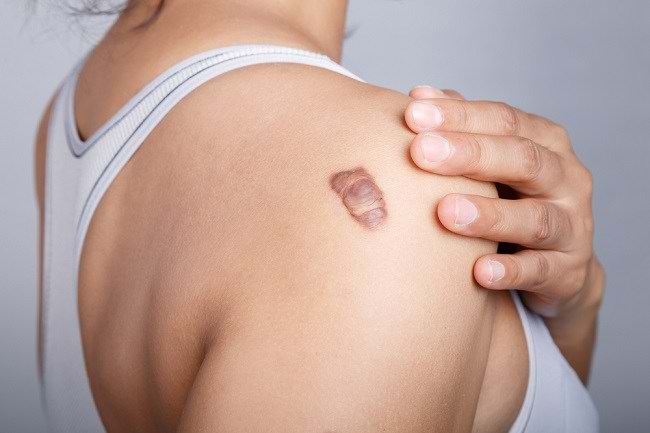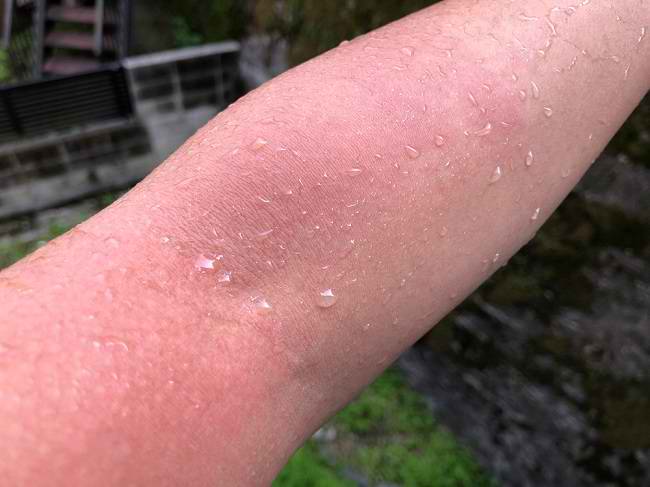Nummular dermatitis or discoid eczema is a skin inflammation characterized by the appearance of coin-shaped patches on the skin. It is often mistaken for ringworm because of its similar appearance. So that you are not confused, see the explanation here.
The exact cause of nummular dermatitis is not known. However, experts suspect that this condition is caused by allergies to certain substances, such as nickel, formalin, and antibiotics neomycin.

The following things can also increase a person's risk of developing nummular dermatitis:
- Very dry skin
- Wounds on the skin
- Stress
- skin infection
- Taking certain medications, such as isotretinoin
Numular Dermatitis Symptoms
Patches of nummular dermatitis are most commonly found on the thighs or calves, but they can appear on other areas of the body as well. The size can vary from 2–10 cm. The color can also vary, ranging from pink, red, to brown. These patches can cause itching that usually gets worse at night.
At first, nummular dermatitis appears as small red spots like blisters. These spots then coalesce and form one larger red spot like a coin. These patches may swell and ooze fluid.
Over time, patches of nummular dermatitis will dry out, scaly, and peel. The center of the patch will also become clean, giving it the appearance of ringworm, which is a skin infection caused by a fungus.
Nummular dermatitis can become infected. The following are signs of infected patches of nummular dermatitis:
- The skin around the patch becomes red, swollen, and feels hot.
- There is a lot of fluid coming out of the spot.
- There is a yellowish crust on the spots.
Severe infections can cause the sufferer to have a fever, feel weak, and chill.
Numular Dermatitis Treatment
Because they look similar to ringworm, your doctor may perform a microscopic examination of the skin scrapings to determine whether the patches are caused by nummular dermatitis or ringworm.
If you are diagnosed with nummular dermatitis, your doctor will prescribe medication to treat the itching symptoms. Medications can be corticosteroid ointments and antihistamine tablets. In addition, the doctor will also add antibiotics if there are signs of infection in the spots. Antibiotics can be in the form of creams, ointments, or tablets, depending on the severity of the infection.
In addition to treatment from a doctor, there are some simple treatments you can do to relieve the symptoms of nummular dermatitis and prevent it from getting infected. Here are the ways:
1. Use a moisturizer
The simplest treatment for nummular dermatitis is to regularly apply a moisturizer. Apply a moisturizer at least three times a day, especially on patches of nummular dermatitis and the area around it. The best time to apply moisturizer is after you're done showering.
2. Protect the skin area
You also have to protect the area of the skin affected by nummular dermatitis so that it is not easily injured or blistered and avoids dirt that can cause infection. Wear loose clothing that can cover patches of dermatitis. Avoid clothing that is made of rough materials, such as wool, as this can make itching worse.
3. Avoid scratching
Although the patches can be very itchy, you are advised not to scratch them. To relieve itching, you can compress the patches using an ice pack. Scratching the spot can be a relief, but it can also lead to infection and sores. Both of these should be avoided because they can worsen the condition of nummular dermatitis.
Sometimes, you may accidentally scratch a patch of nummular dermatitis. To reduce the risk of infection and injury, keep your hands clean and keep your nails short and clean regularly.
4. Avoid irritating soaps
Avoid using soaps and skin cleansers that contain irritants that can damage the skin. If the soap you use makes your skin feel dry, it's better to stop using it. Instead, you can use soaps with moisturizing or emollient ingredients that are gentle on the skin.
Nummular dermatitis is a chronic skin condition. This means that this condition can be difficult to heal or recur. Therefore, as much as possible avoid triggers. In addition, try to always maintain the health of your skin. Not only by applying moisturizer and doing skin care, you can also maintain healthy skin by eating foods that are good for the skin, namely foods that are rich in vitamins and antioxidants.
If you see patches such as nummular dermatitis that itch on your skin, even to the point of interfering with your activities and rest, you should immediately consult a doctor to get the right treatment.









